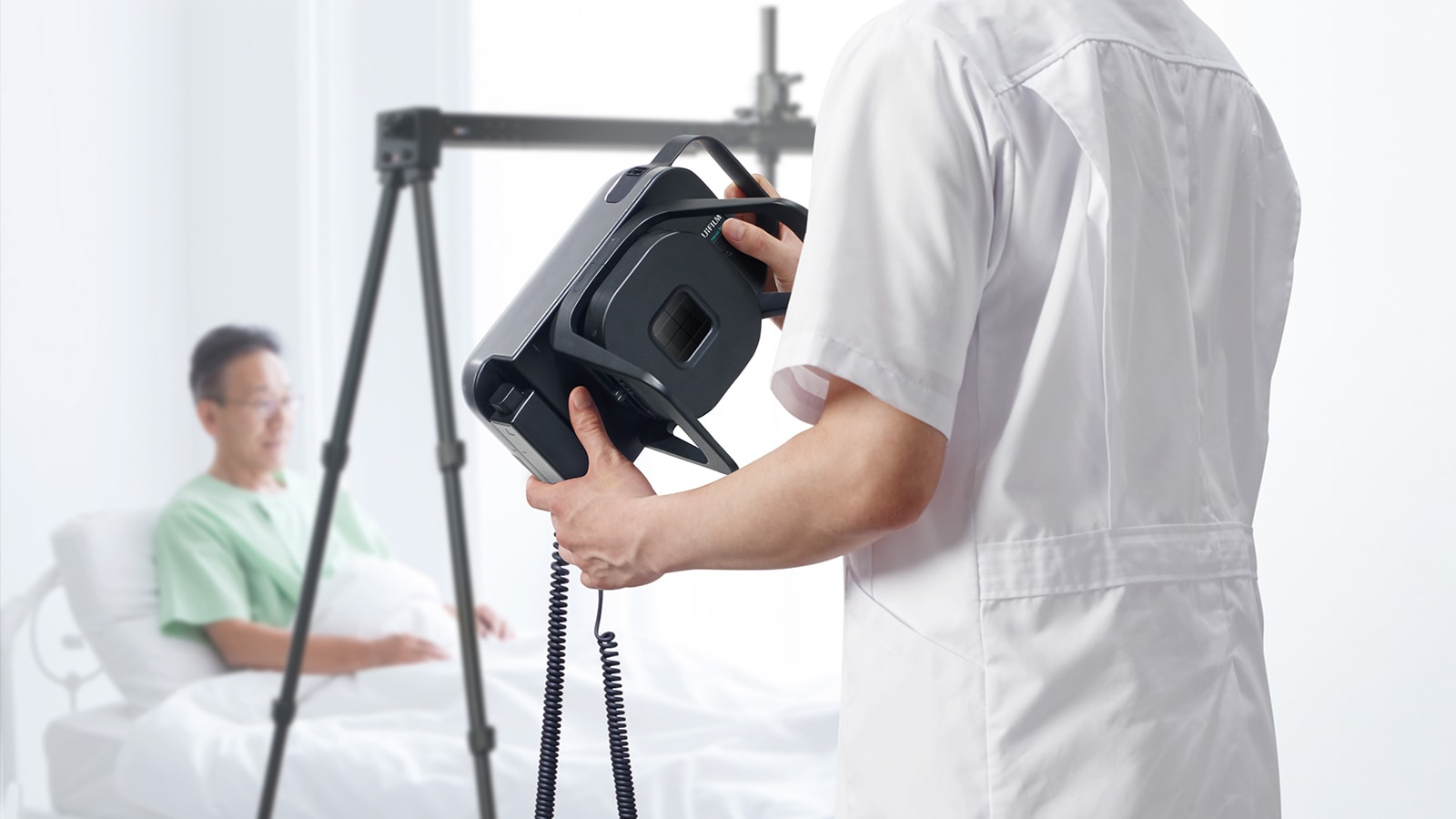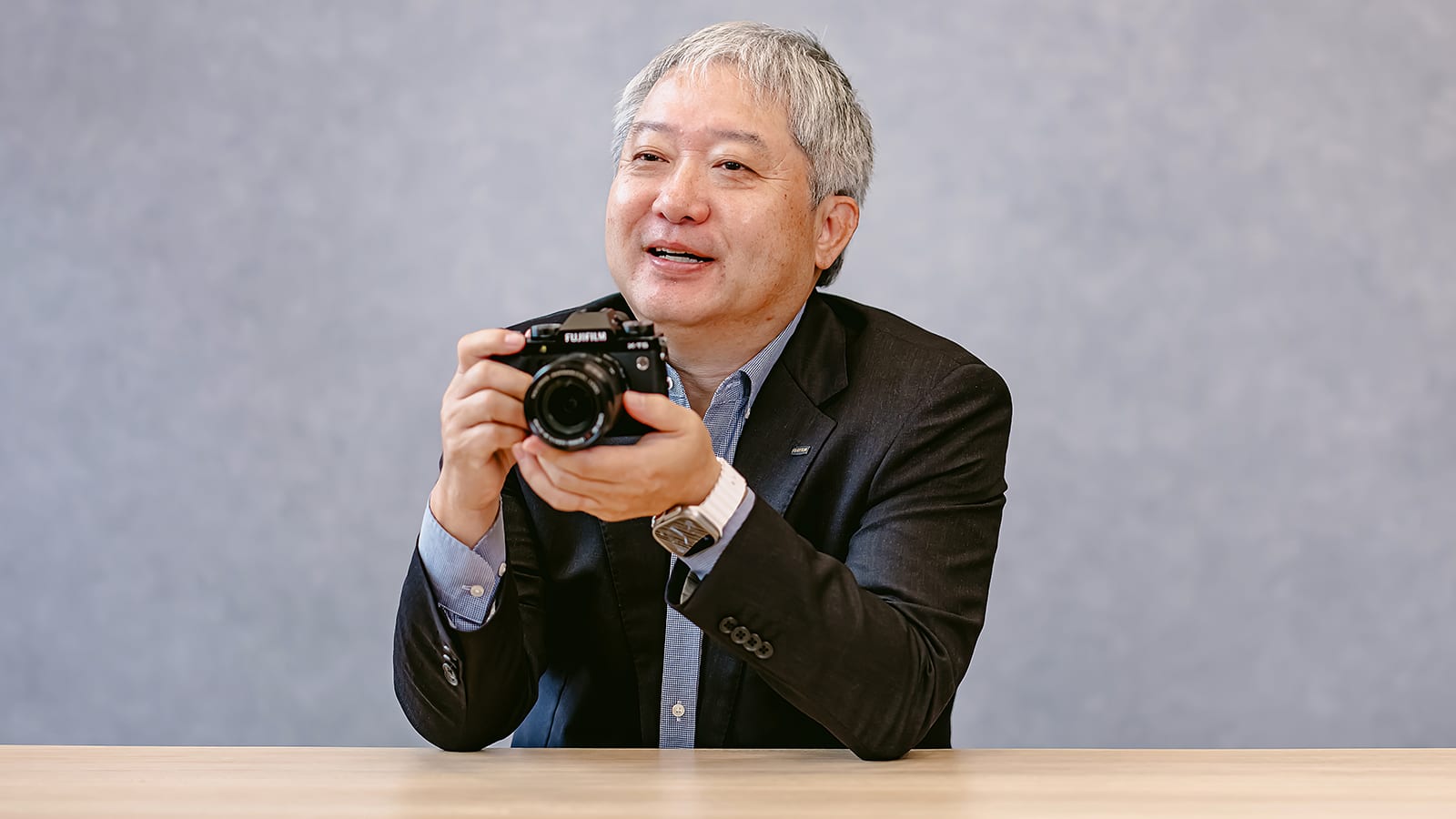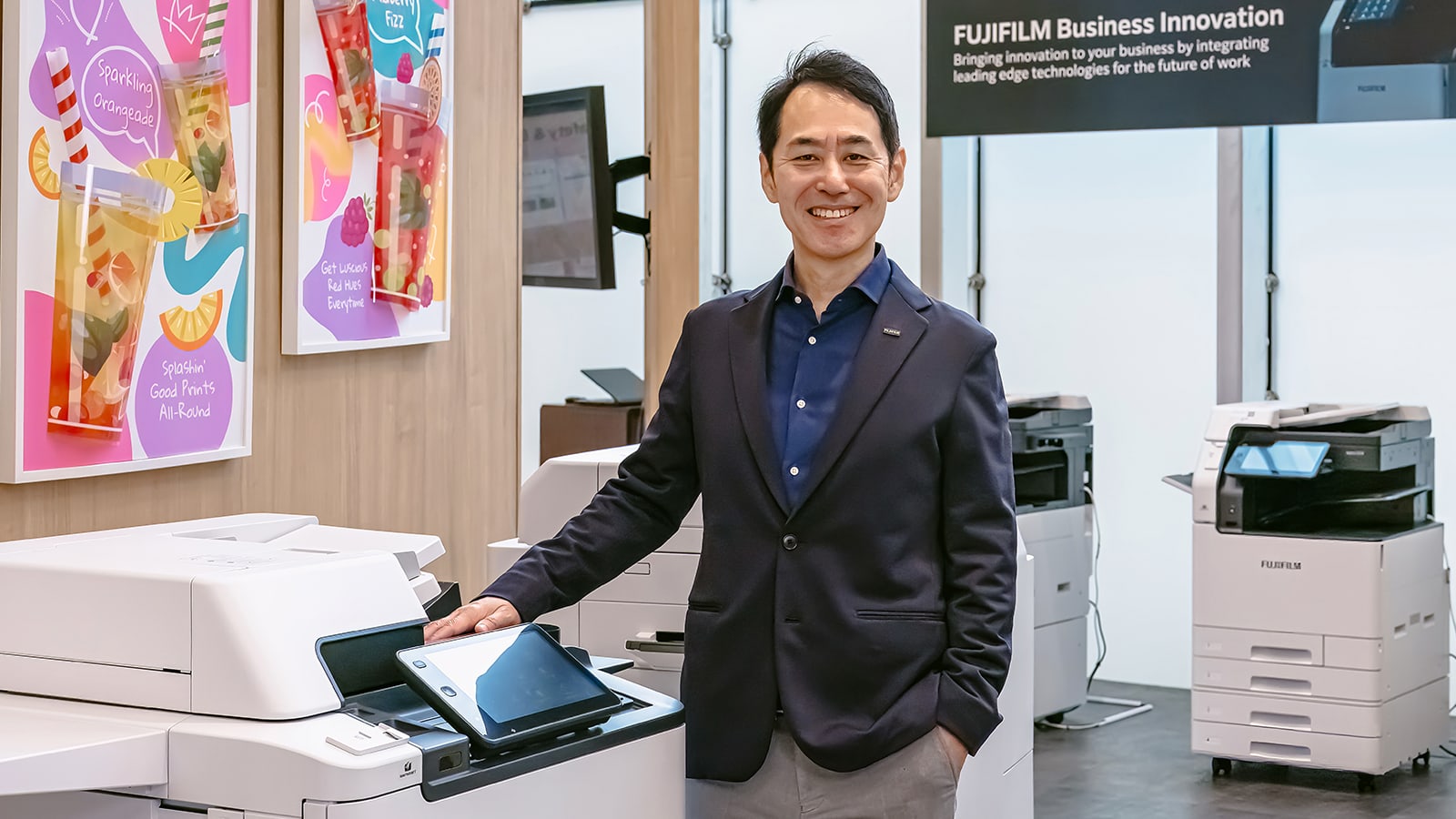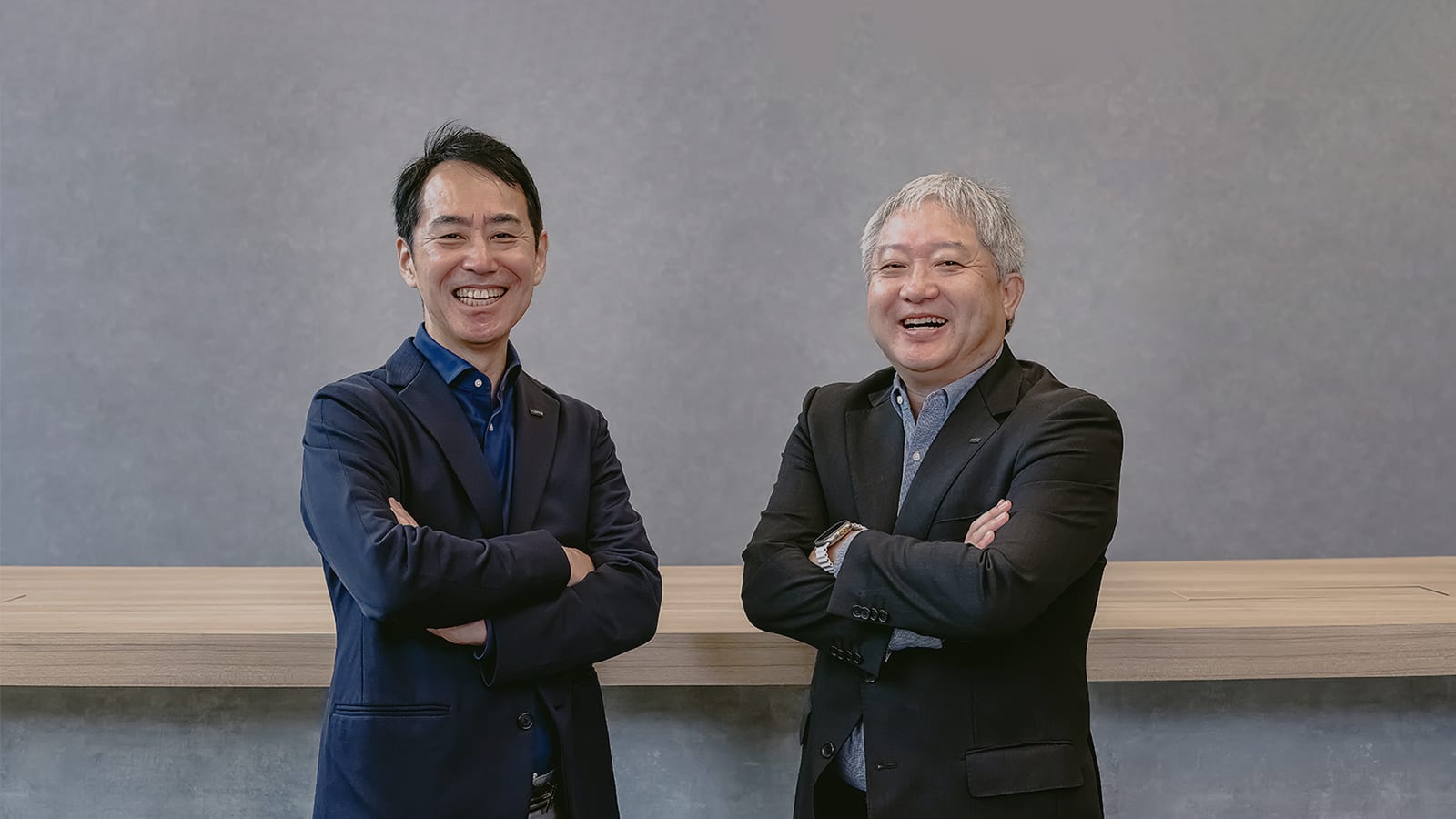2024 marks the 90th anniversary of Fujifilm Group. Since its foundation, Fujifilm has remained steadfast in delivering products and services driven by advanced and proprietary technologies, all aimed at bringing smiles to people’s faces. With its employees as the driving force, the company strives to propel the group towards achieving sustainable growth and realising its new group purpose of “Giving our world more smiles”.
Fujifilm’s new group purpose “Giving our world more smiles” serves as a unifying force across all its business ventures.
According to Mr Haruto Iwata, managing director of FUJIFILM Asia Pacific, the company’s expansion into various sectors over the years has necessitated the development of a single group purpose. “’Giving our world more smiles’ is a connecting thread that runs through all of Fujifilm’s diverse businesses - including healthcare, materials, business innovation and imaging. We want to bring joy to people through the value we offer them,” he said.
FINDING SYNERGY FOR FUTURE GROWTH
While most people might be more familiar with the Fujifilm brand through its consumer imaging products such as the INSTAX instant camera series, there is much more to the company’s portfolio.
Over the decades, it has established itself as a major player in the imaging, healthcare, business innovation and material businesses in Singapore and the region. Through these businesses, it seeks to bring smiles to people in meaningful ways: By improving lives, enriching experiences and enhancing productivity.








As a convenient gateway to Asia Pacific’s thriving markets, Singapore was chosen as the location for Fujifilm’s regional headquarters for certain businesses. Factors that add to the country’s appeal include its advanced infrastructure, conducive business environment and skilled workforce.
In 2021, Fuji Xerox, the business solutions arm of Fujifilm Group, was renamed FUJIFILM Business Innovation and brought fully under the umbrella of FUJIFILM Holdings alongside FUJIFILM Asia Pacific. This strategic move aimed to foster stronger synergies and extend a greater impact in key markets like Singapore and the wider region.
Mr Iwata noted that the location of these two entities within the same office building has catalysed new business synergies and collaborations. This arrangement has facilitated a deeper understanding of the challenges faced by both businesses, resulting in the delivery of customised solutions to meet varied customer needs.
Looking ahead to the next decade and beyond, Mr Iwata reiterated: “By combining the Fujifilm Group’s strengths in technology, and the wisdom of our diverse and talented workforce, we continue to contribute towards resolving social issues through our business actvities. This in turn will lead to the development of this region and bring happy smiles to the people living here.”

THE FUTURE OF IMAGING, HEALTHCARE AND MATERIALS
Despite the evolution of photography from film to digital cameras and smartphones, Mr Iwata emphasized that Fujifilm believes the future holds great potential for the advancement of photographic culture. He noted that as people increasingly engage with the medium, there is a growing trend towards expanding enjoyment beyond mere photo capture to encompass displaying and gifting photographs.
“We will continue to create new value by making full use of our wide range of technological assets from — photographic devices to printing — to provide products and services that increase and record people’s smiles,” he assured.
Imaging is also an important aspect of Fujifilm’s healthcare business. It currently boasts an array of imaging products such as X-ray diagnostic imaging systems, endoscopes, ultrasound, computed tomography (CT) and magnetic resonance imaging (MRI). These are complemented by its medical IT systems, which deliver open solutions that can be integrated with products and systems from other companies.

Fujifilm currently has the largest market share globally in medical imaging information systems. Under the AI technology brand REiLI, Fujifilm strives to drive the development of AI technologies that will provide new value to medical professionals in the areas of high image quality, organ segmentation, computer-aided diagnosis and improved workflow efficiency.
“We will continue to address unmet medical needs and improve access to medical care,” stated Mr Iwata, adding that the technological progress of AI in healthcare has been particularly remarkable in recent years. “We believe that AI can be a tool to address medical disparities and reduce the burden on patients through early disease detection.”
LEADING IN SEMICONDUCTOR MATERIALS MANUFACTURING
Last year, Fujifilm completed its acquisition of Entegris’s semiconductor high-purity process chemical business, rebranding it to FUJIFILM Electronic Materials Process Chemicals. The business has seven manufacturing sites worldwide, including Singapore, which will serve as Fujifilm’s first electronic materials manufacturing site in Southeast Asia.

AT THE FOREFRONT OF BUSINESS INNOVATION
Around the world, digital transformation was accelerated by the COVID-19 pandemic. Digitalisation and process automation became top priorities for ensuring business continuity when employees worked remotely, and face-to-face collaboration was impossible.
Fujifilm Business Innovation aims to be a key digital transformation partner for its customers, driving their digitalisation initiatives through its business solutions. By expanding the provision of business solutions and other services, it aims to grow the overall sale of its Business Solutions business segment to more than 400 billion yen (S$3.57 billion) in 2027, approximately 1.5 times what it achieved in 2022.

Mr Masatsugu Naito, president, FUJIFILM Business Innovation Asia Pacific, added that FUJIFILM Business Innovation is continuously innovating to meet evolving customer needs through cutting-edge technologies in the domains of cloud computing, robotic process automation, AI, finance automation and unified communication solutions.
“Businesses need a dependable partner to attain their digital transformation goals,” he said. “We are confident of presenting professional digital transformation roadmaps to help them succeed.”













